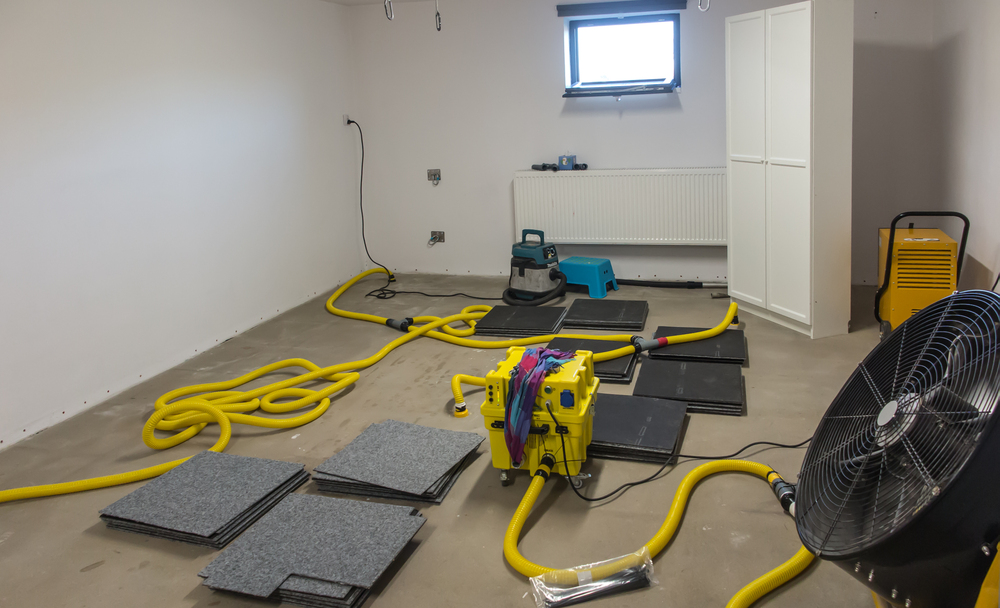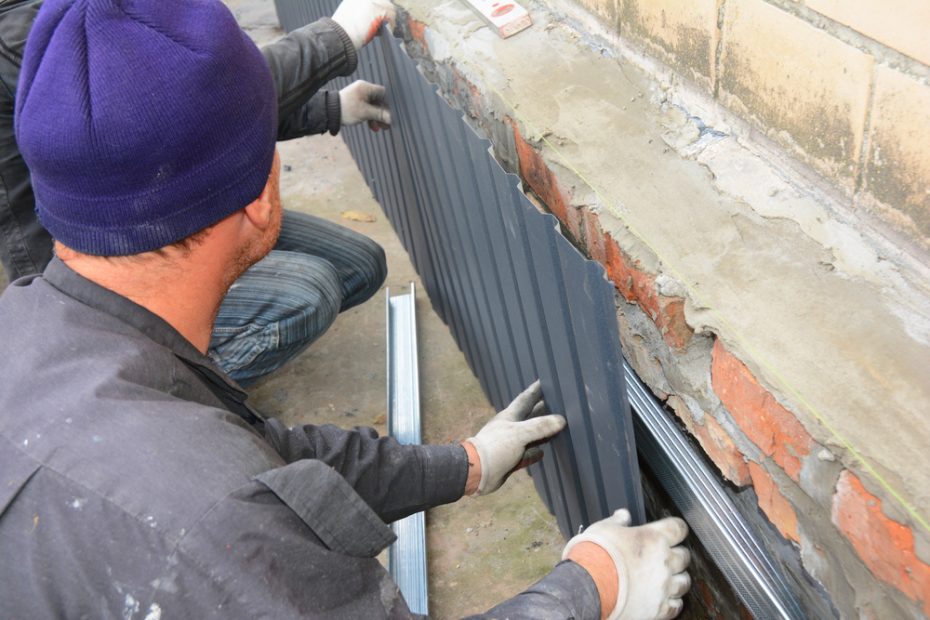A $500 foundation problem can spiral into a $15,000 nightmare if left unchecked. My experience helping countless homeowners handle foundation problems has shown how repair costs catch many people unprepared.
Homeowners frequently ask about foundation repair costs and the factors behind final prices. The average foundation repair cost varies substantially – from simple crack repairs to major structural fixes. This calculator will give you an estimate of the cost to repair slab or basement repairs. The complete guide below will help you understand your investment and obtain accurate repair estimates to help you budget for the expense.
Foundation Repair Cost Calculator
Welcome! Let’s estimate the cost of your foundation repair.
This piece covers the actual costs of foundation repair and exposes hidden fees. You’ll discover practical ways to save money without compromising quality. The information helps you make smart decisions about foundation repairs, whether you need immediate fixes or plan future maintenance.
Understanding Foundation Repair Base Costs
My years in the foundation repair industry have taught me a lot about repair costs. Let me share what homeowners should expect to pay. This knowledge will help you make better decisions about your repair needs.
Average costs by repair type
Your foundation repair estimate will depend on what needs fixing. Here’s what we usually see in the industry:
| Repair Type | Average Cost Range |
|---|---|
| Minor Crack Repairs | $250 – $800 |
| Foundation Lifting | $20,000 – $23,000 |
| Leak Repairs | $2,000 – $7,000 |
| Mudjacking/Slabjacking | $500 – $1,300 |
| Piering/Underpinning | $1,000 – $3,000 per pier |
Regional price variations
Repair costs vary greatly by location. Homeowners in Los Angeles pay between $3,200 and $9,200, while New York residents see bills ranging from $1,700 to $5,500. Several factors cause these differences:
- Labor rates in your area (around $200 per hour)
- Material costs and availability
- Your local soil conditions
- Building codes and permits in your region ($75-$150)
Seasonal pricing factors
Smart timing of your foundation repair can save you money. Foundation problems need quick attention, but contractors often charge less during slower periods. Many companies reduce their rates in winter months when work slows down in colder areas, though this varies by location.
Your soil’s condition affects pricing throughout the year. Summer’s dry soil can make some repairs more complex, especially when we install concrete piers. This sometimes leads to higher foundation repair costs.

Common Hidden Fees to Watch For
I’ve noticed homeowners often look just at the basic repair costs while checking foundation repair estimates. They miss out on hidden fees that can make their final bill much higher. Like the cost to finish a basement, the expense is high. But there are ways to ensure that you keep the expense as low as possible. Let me point out what you should look for.
Inspection and permit costs
The work starts with professional inspections and permits. A full foundation inspection costs between $300 to $1,000. Complex assessments might cost up to $3,000. You’ll need local building permits too – they cost $100 to $500 based on where you live.
Most people don’t know that some projects need several types of permits:
- Construction permits
- Geotechnical permits
- Special inspection certifications
Equipment and material surcharges
Equipment and material costs catch many homeowners by surprise. These charges usually include:
- Specialized lifting equipment
- Hydraulic machinery
- Foundation brackets and bolts
- Push or helical piers
- Polyurethane filling materials
Your foundation’s problems can change these costs by a lot. To cite an instance, working with unstable soil needs special solutions and extra equipment. This adds more to your foundation repair estimate.
Emergency service fees
Critical foundation issues mean emergency service fees that add a big chunk to your repair bill. Here’s what it costs:
| Time Period | Emergency Service Rate |
|---|---|
| 5 PM – 11 PM | $250 |
| 11 PM – 6 AM | $350 |
| Holiday Visits | Additional $50 |
My advice is to fix foundation issues during regular business hours if you can. But if you’re dealing with an emergency, you might have to pay these extra costs to stop worse structural damage.
People often forget about post-repair work. You might need drywall repairs, door adjustments, or changes to your irrigation system after the foundation work is done. These extra repairs can add a lot to your total foundation repair cost.
Contractor Pricing Structures Explained
My years of foundation repair consulting have taught me a lot about contractor pricing structures. Let me explain how contractors set their rates and what you should expect in your foundation repair estimate.
Hourly vs flat rate pricing
Contractors use two main approaches to price foundation repairs:
| Pricing Structure | Typical Range | Best For |
|---|---|---|
| Hourly Rate | $75-$200/hour | Complex/uncertain projects |
| Flat Rate | Set project price | Well-defined repairs |
Hourly rates give more flexibility for complex projects, while flat rates work better for standard repairs. Most contractors charge around $200 per hour for labor, though rates can vary by a lot based on expertise and location.
Material markup practices
Contractor markups on materials are standard in the industry. Most general contractors add 30% to 50% to material costs to cover:
- Procurement and handling costs
- Storage and transportation
- Warranty coverage
- Risk management
Labor cost breakdown
Labor makes up the largest part of your total foundation repair cost based on thousands of estimates I’ve reviewed. General contractors typically add 25% to labor costs.
Foundation repair professionals charge between $75 to $200 per hour depending on their expertise and repair complexity. The total labor cost has several components.
Contractors often use different markup structures for various parts of the job. To cite an instance, see specialized work like hydraulic pier installation that carries higher markups due to required expertise. Each pier costs between $1,000 to $3,000.
My clients benefit from requesting detailed breakdowns of labor hours and material costs in their estimates. This transparency helps prevent surprises and gives you a clear picture of the costs. Quality foundation work with proper markup structures will give a lasting repair the first time, even if the quote seems high initially.
Negotiating with Foundation Contractors
My experience as a foundation repair expert has taught me a lot about guiding homeowners through negotiations. Let me share some proven strategies that will help you get the best deal while ensuring quality work.
Getting competitive bids
The best approach is to get multiple foundation repair estimates – ideally between three to eight bids. This helps you understand the market rate and gives you room to negotiate. Here’s what I suggest when collecting bids:
- Look for contractor ratings (shoot for 4.5+ stars)
- Make sure they have proper licenses and insurance
- Browse third-party review sites like Google, Yelp, and Angi
Note that the cheapest bid might not be your best option. I’ve seen too many cases where an unusually low estimate ended up getting pricey later.
Understanding quote components
A detailed foundation repair estimate needs several essential elements. Here’s what I look for in every quote:
| Component | What to Check |
|---|---|
| Scope of Work | Detailed problem description and repair method |
| Materials | Itemized costs and quality specifications |
| Labor | Hourly or project-based pricing |
| Additional Costs | Permits, inspections, site preparation |
| Timeline | Project duration and milestone dates |
Each pier or piling typically runs between $1,000 to $3,000. Make sure these costs appear clearly itemized. My clients always ask for line-item breakdowns instead of accepting lump-sum pricing.
Price matching strategies
Over the last several years, I’ve developed some effective negotiation tactics:
- Timing Matters: Schedule repairs during off-peak seasons (typically fall or winter) to get better rates
- Make Use of Multiple Quotes: Detailed quotes from reputable competitors help negotiate better terms. Many contractors will match or beat their competitors’ pricing
- Payment Terms: Work out favorable payment schedules – watch out for contractors who want large upfront payments
A structural engineer’s report can substantially strengthen your negotiating position. This independent assessment helps you avoid unnecessary repairs and ensures competitive bids for the work you actually need.
The most important factors when comparing quotes are the scope of work, quality of materials, and warranty coverage. A solid warranty can save thousands in future repairs, so don’t hesitate to ask for better coverage terms.
Smart Financing Options
My experience helping countless homeowners get foundation repair financing has taught me something important. Smart financing can make the difference between a manageable project and a financial burden. Let me share what works best for my clients.
Home improvement loans
Personal loans are often the quickest way to fund foundation repairs. Many lenders can provide same- or next-day funding with extended repayment terms. Here’s what I tell my clients:
| Loan Type | Benefits | Best For |
|---|---|---|
| HUD Title 1 | Government-backed, up to $35,000 | Lower-income homeowners |
| Personal Loan | Quick approval, no collateral | Immediate repairs |
| USDA Loans | Very low-income assistance | Rural homeowners |
Homeowners who are 62 and older should look into the Home Equity Conversion Mortgage (HECM) program. This government-insured program lets you use your home’s equity for repairs.
Insurance coverage possibilities
Insurance coverage can substantially cut your out-of-pocket costs for foundation repairs. Your policy might cover damage from:
- Sudden water damage from burst pipes
- Tornado or windstorm damage
- Lightning strikes
- Vandalism
- Fire damage
My advice is to document everything when filing a claim. Photos and videos of the damage can help speed up the claims process. Note that standard policies won’t cover flood or earthquake damage unless you have specific endorsements.
Payment plan options
Many homeowners can benefit from flexible payment plans when traditional financing isn’t right. Several foundation repair companies now offer monthly payments as low as $125. Here’s what you should think over:
Some contractors team up with third-party lenders to offer “same as cash” loans. These loans let you make monthly payments without interest. This works great for homeowners who need repairs right away but want to avoid high-interest debt.
Limited options shouldn’t stop you. Federal assistance programs through HUD and USDA can help with home repairs. These programs have specific requirements:
- Must be the primary homeowner and occupant
- Income must fall below county limits
- May need to prove inability to get conventional credit
My clients often get the best results by combining multiple financing options. You could use a personal loan for immediate repair costs while applying for government assistance to cover extra expenses. Just make sure you know all terms and interest rates before signing anything.
Many reputable companies now offer their own financing through partnerships with companies like Hearth. These programs are a great fit for homeowners who want simple and united financing arrangements.
Conclusion
Foundation repairs can seem daunting. The right knowledge about costs, fees, and financing options helps you make smart decisions about your home’s structural integrity. My experience shows that homeowners save thousands on repairs when they understand pricing structures and negotiate effectively.
A well-planned approach makes a significant difference. Multiple detailed quotes, awareness of hidden fees, and suitable financing options create a solid strategy. Many homeowners achieve better affordability by combining different payment methods.
Foundation problems never improve without intervention. Your quick action prevents minor issues from becoming major structural concerns. The repair costs might overwhelm you at first, but protecting your home’s foundation brings value that exceeds the original investment.
